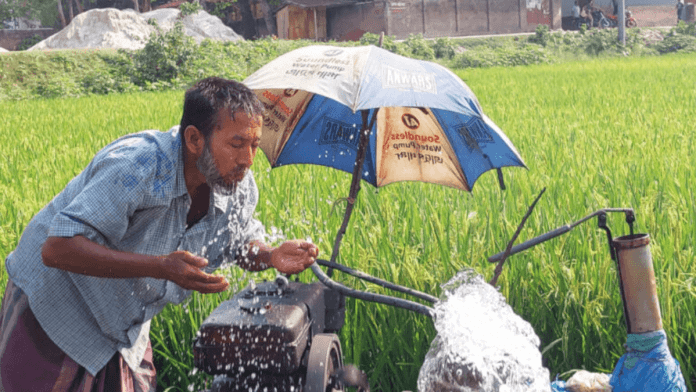News in Brief:
– Record-breaking heatwave sweeps across Asia, disrupting daily life and posing severe challenges for farmers.
– Human-induced climate change exacerbates the heatwave, highlighting the urgent need for adaptive measures to safeguard agricultural livelihoods.
From Myanmar to the Philippines, record-breaking heat has disrupted daily life, with children forced to stay indoors and farmers struggling to cope with the sweltering conditions, a news coverage said.
The heatwave has engulfed large parts of South and Southeast Asia, shattering temperature records in various countries. Myanmar’s Chauk and the Philippine capital Manila have witnessed soaring temperatures, while Thailand, Cambodia, Vietnam, India, and Bangladesh brace for scorching heat above 40 degrees Celsius.
Impact of heatwave on the region
In Thailand, where temperatures are hitting historic highs, more than three dozen districts have experienced record-breaking heat. This surge in temperature poses dire consequences for farmers, affecting crop yields and livestock well-being. Bangladesh’s decision to close schools underscores the severity of the situation, with power systems strained and the agricultural sector reeling from the heat’s adverse effects.

Beyond human populations, animals are also suffering in the heat. At the Manila Zoo, measures to cool down big cats reflect the urgency of the situation. Tigers and lions are offered frozen treats made from animal blood and vitamins to beat the heat.
Experts attribute the intensifying heatwaves to human-induced climate change, exacerbating already elevated temperatures in the region. Factors such as the El Nino weather phenomenon and rapid urbanisation contribute to the prolonged heat spell, amplifying its impact on agriculture and livelihoods.
Amid the adversity, farmers are striving to adapt to changing climate patterns. Discussions at a recent workshop in Dhaka emphasised the need for adaptive measures to mitigate heatwave effects on livestock. Initiatives like the Regional Integrated Multi-Hazard Early Warning System provide crucial weather forecasts to empower farmers in making informed decisions.



